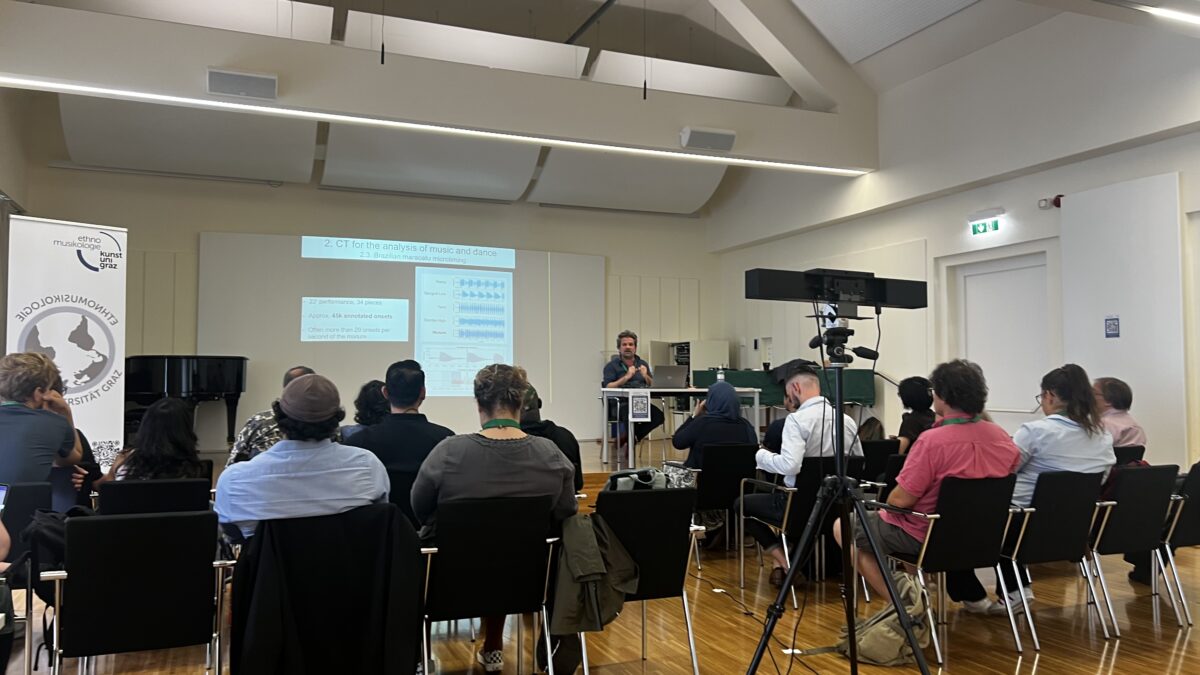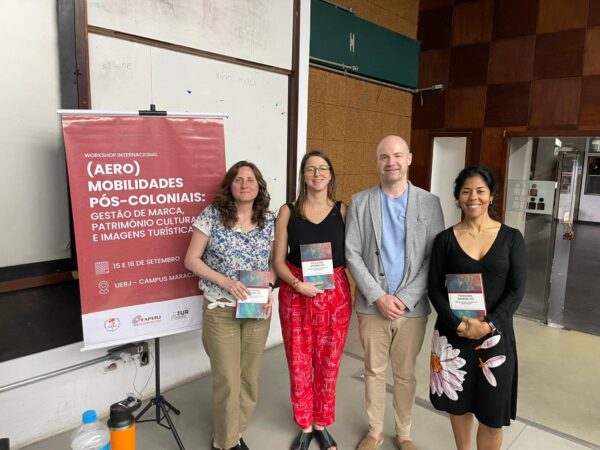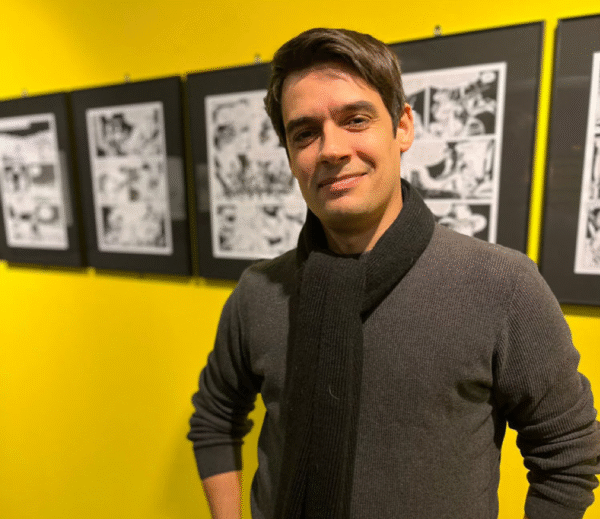INET-md researcher invited as keynote speaker on digital methods in music and dance studies

Filippo Bonini Baraldi, researcher at INET-md, was invited to be a keynote speaker at the Institute for Ethnomusicology –University of Music and Performing Arts Graz (Austria), within the “International Methods Workshop for Early Career Scholars“.
In this year edition, the event gathered 30 participants, half of them joining online, and focused two themes:
- Choreomusicology in practice: How to study the relationship between movement and sound in ethnomusicology and ethnochoreology; and
- Computer aided methods: How to work with digital and empirical methods n ethnomusicology and ethnochoreology.
Filippo’s keynote lecture, held in the 23rd of September under the title ““Introduction to digital methods in anthropological music and dance research”, elaborated a series of questions related to the digital turn in ethnomusicology:
Ethnomusicologists are nowadays making increasing use of computer-aided methods for analysing different music and dance traditions of the world. At international conferences, we can hear questions such as: “How did you realize that multi-track field recording?”, “Which motion-capture analysis hardware/software do you prefer?” “Can you suggest an efficient micro-timing algorithm?”. This digital turn in ethnomusicology goes along with a renewed effort to analyse the formal properties of the world’s music and dance traditions – intervals and micro-intervals, rhythms and micro rhythms, gestures and micro-gestures – as the emergence of new scientific journals and communities proves (Analytical Approaches to World Music, Empirical Musicology Review, ICTMD Study Group on Sound, Movement, and the Sciences, etc.). In this talk, rather than fully deepening this formalist research strand (which I practice myself, to some degree), I will focus on the ethno-anthropological aims and aspirations of our discipline. Through examples coming from my own research in Romania and Brazil, I will show how computer-aided methods allowed me to explore, and possibly better understand, human behaviours, concepts, and interactions.




